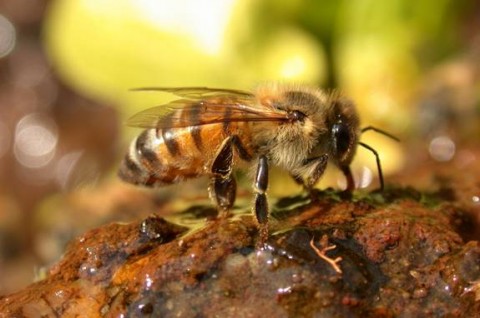Citizens should be vigilant but not alarmed
 Vonore, TN – Tennessee’s first case of partially Africanized bees was confirmed through genetic testing last week in a colony belonging to a beekeeper in Monroe County. The colony has been depopulated and the Tennessee Department of Agriculture is working with beekeepers in the area to determine if other bees could have been affected.
Vonore, TN – Tennessee’s first case of partially Africanized bees was confirmed through genetic testing last week in a colony belonging to a beekeeper in Monroe County. The colony has been depopulated and the Tennessee Department of Agriculture is working with beekeepers in the area to determine if other bees could have been affected.
State Apiarist, Mike Studer, says it is no surprise that partially Africanized bees have made their way to Tennessee considering they have already been found in other states such as Texas, Georgia, Mississippi and Florida.

“We will be working with beekeepers to monitor their hives and to look for any signs of other aggressive bees in the area.”
Test results show that genetically, the bees were less than 17 percent Africanized, far less than the 50 percent considered by USDA to be truly Africanized. The bee colony was purchased by the beekeeper last year from an out-of-state dealer.

The most important difference between an Africanized honey bee and our domestic European honeybee is their behavior.
Africanized bees tend to colonize in smaller spaces than the docile European honeybee. Therefore, if you see honeybees in the ground, or in small openings such as flower pots or bluebird houses leave them alone and call the state apiarist immediately to assess the situation. Bees do not try to hurt people, they simply defend their territory.
If you do disturb an Africanized honeybee colony, follow these steps to protect yourself.
- Run.
- Cover your head with your shirt or jacket while running because Africanized bees tend to sting the face and head.
- Never stand still or get boxed into a place outdoors where you cannot escape the attack.
- Seek immediate shelter in an enclosed building or vehicle. Isolate yourself from the bees.
- Do not attempt to rescue a victim without the proper protective gear and training. Doing so could make you the second victim.
State law requires all beekeepers register their colonies with the TDA and to update their registration every three years. Once registered, the state apiarist is able to contact beekeepers in the event of a disease outbreak or aerial pesticide spraying in their area. Registration also gives the beekeepers the opportunity for free inspections to make sure their colonies are healthy. Registration can be done online.
For more information on TDA’s Apiary Section or to register a bee colony, visit www.TN.gov/agriculture/regulatory/apiary.html


